This site contains affiliate links to products. We may receive a commission for purchases made through these links. See the full affiliate and privacy policy disclosures here.
Have you ever wondered if there is a way to preserve eggs long-term? How did great grandma and grandpa keep their extra eggs fresh for so long? Was it easy to do? Was it safe? I started asking some of these same questions a few years ago when we began raising chickens for eggs. That’s when I decided to give water-glassing eggs a try!
What is water glassing eggs in lime? (aka liming eggs or water-glassing eggs)
Water glassing or liming eggs is a method of preserving eggs long-term without refrigeration. This is accomplished by submerging the eggs in a ratioed mixture of water and calcium hydroxide. Calcium hydroxide is known by different names depending on its intended usage. Pickling lime and slaked lime are two of the most common names.
Pickling lime is used widely in the food industry. You can even buy it through Azure Standard. It is widely used in dentistry, orthodontics, and farming. It is also used in paper-making and mixing lime mortar.
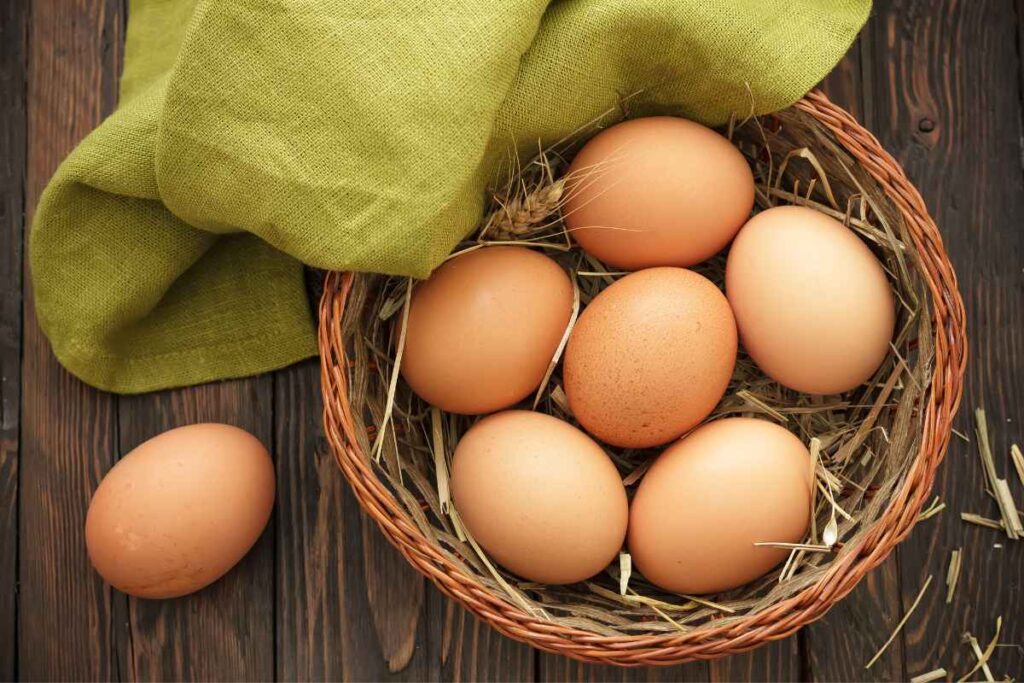
This site contains affiliate links to products. We may receive a commission for purchases made through these links. See the full affiliate and privacy policy disclosures here.
History of preserving eggs without refrigeration
Did you know people used to preserve eggs before refrigeration by:
- Turning the eggs over every so often
- Applying a layer of vaseline or oil over eggs
- Placing eggs in sawdust
- Making century eggs in China
I don’t recommend any of the above methods. Not only are many of the preservation fail rates high, but some are also unsafe. This video from the Townsends is a great resource on the history of different types of egg preservation.
What kind of eggs can be water-glassed?
Any type of unwashed poultry eggs can be water glassed. Using unwashed eggs is extremely important! Eggs have a natural protective layer called the bloom on the outside. The bloom keeps bacteria from crossing the eggshell barrier. It is recommended to use the freshest eggs possible as well as visibly clean eggs (no poo or mud).
Repeat after me. The eggs must be farm fresh and unwashed for water glassing. No store-bought eggs here! More on this below in the FAQ’s.
Water Glassing Eggs Safely
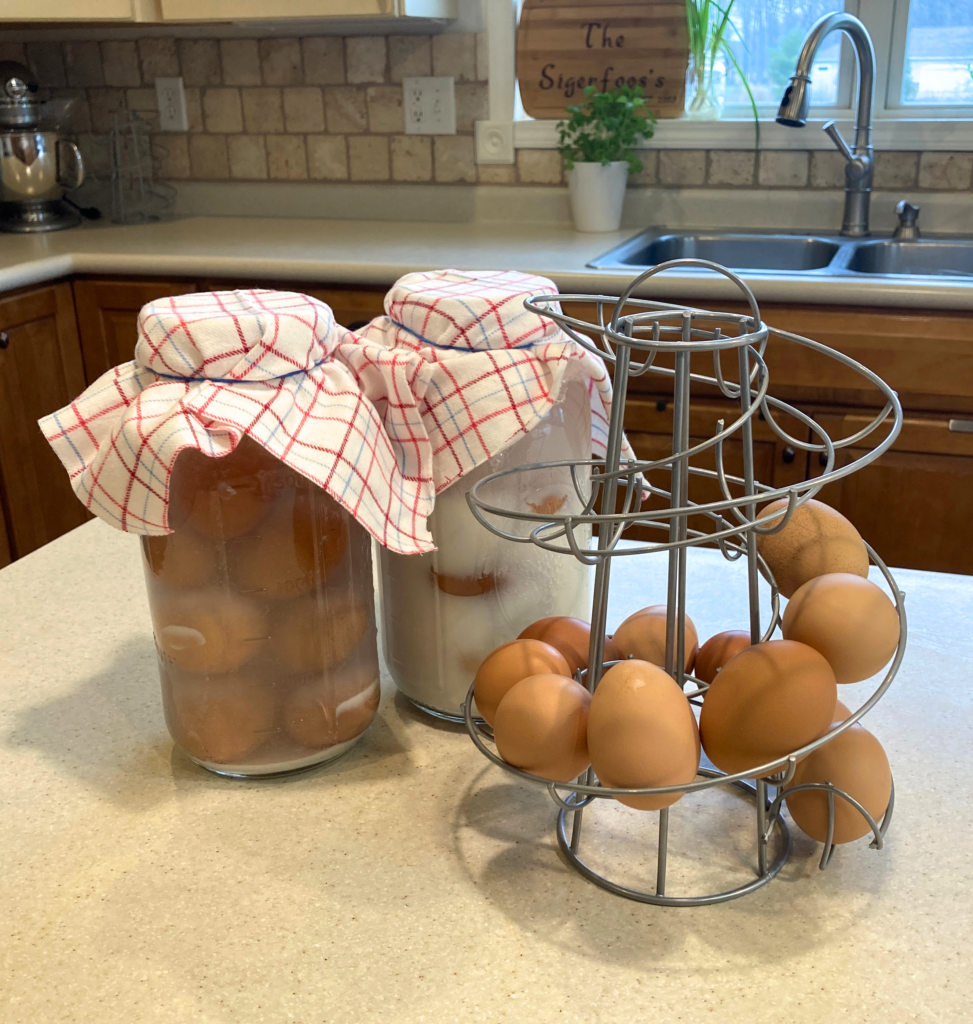
Is water-glassing eggs safe?
Yes and no. As with many other preservation methods, the answer reflects your approach to preservation methods. There are a few simple safety measures you should take when water-glassing eggs.
Pickling lime can irritate the skin.
Pickling lime is caustic and can cause skin and lung irritation. Some safeguards should be taken when working with pickling lime, especially if you have sensitive skin. This isn’t the best recipe for your littlest kids to help with. Don’t put your face near the bag opening or close to the containers you are mixing the solution in. ‘Nuff said about that.
You may ask, “if it is so irritating, is it really safe to consume?” The answer is that you won’t be consuming the pickling lime. Upon removing the eggs from the lime solution, you need to wash them well before using them. And you obviously won’t be eating the shell.
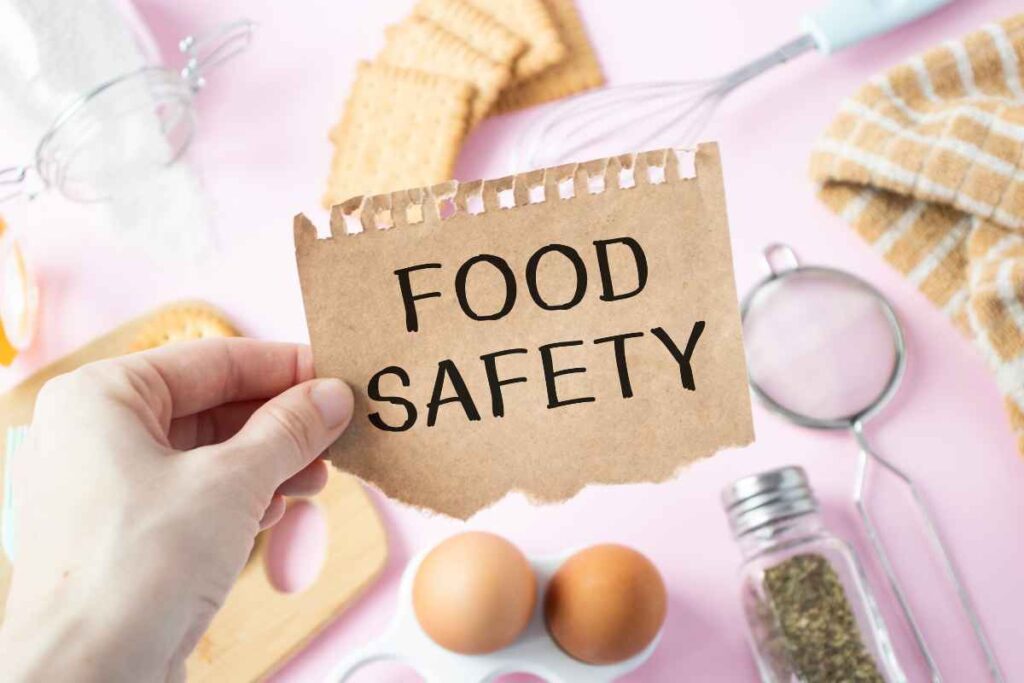
Can I get botulism from water-glassed eggs?
So, first, the bad news.
Botulism spores are found in the natural environment.
You could technically get botulism from eating water-glassed eggs. BUT… you can also get botulism from eating ANY eggs- water glassed or not! You are also just as likely to get botulism by eating green beans, tomatoes, honey, shrimp, or even from a small cut while out digging in your garden. Say what?!
The simple truth is botulism is in the natural environment. The spores of C. botulinum can be harbored in soil for years.
Botulism is extremely rare, especially when compared to other serious deadly foodborne illnesses.
The average number of botulism cases between 2001 and 2017 was 19 per year. Some of these have even been linked to commercially canned foods, including chili outbreaks in 2001 and 2007, as well as commercially prepared nacho cheese sauce in 2017.
Even the outbreak in 1919-1920 that led to the formation of our modern food safety system was the result of 19 deaths from botulism. Not that we should be flippant. My point is that you are more likely to die walking across the road to check your mail this week. Botulism just isn’t that common. It doesn’t even crack the top 5 causes of foodborne illness deaths in the United States.
Now for the good news…
Water-glassing eggs looks to be safe when considering the above facts and studies.
I personally feel that water-glassing eggs is safe when taking the above facts and studies into consideration. Practicing proper handling of food decreases your chances of getting any food-borne illness. My advice is to look at water-glassing eggs as you would look at canning, dehydrating, cooking, etc.
If you’re interested, check out this study from France. The study shows how unlikely it is that botulism will enter an intact eggshell.
There are many historical records that indicate that water-glassing eggs over the centuries has been practiced safely. These reports can be found in many different areas all over the world. There are also many modern homesteaders who water-glass eggs on a regular basis.
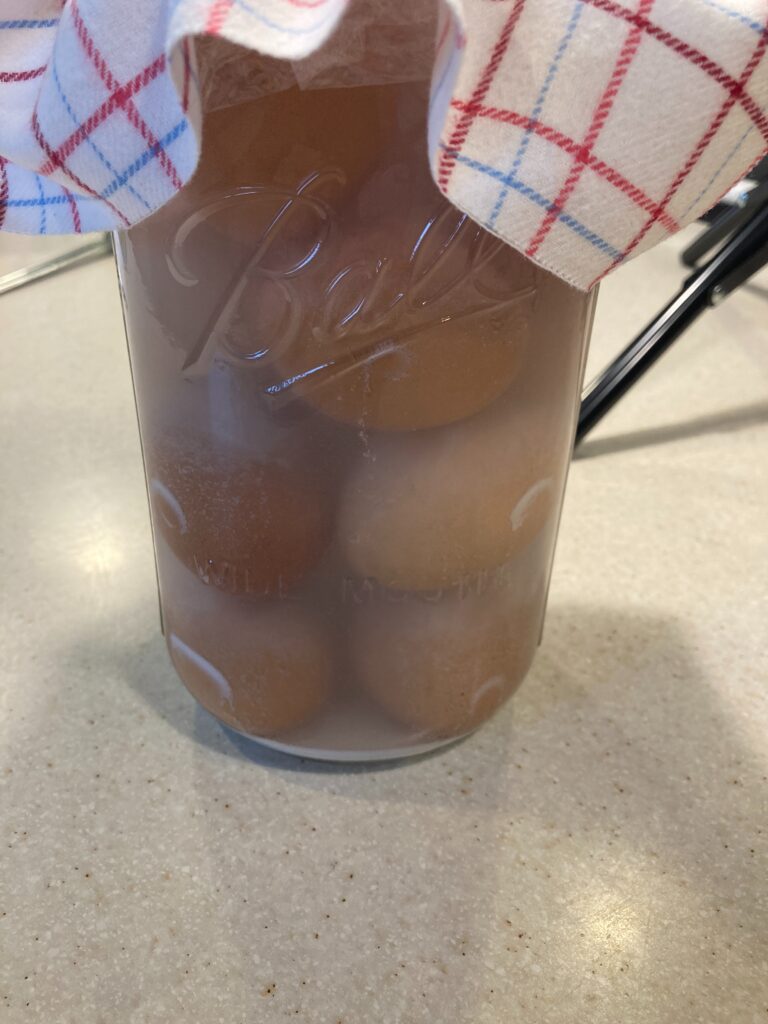
Use common sense when working in the kitchen.
If you have eggs that are old or cracked, hens that seem unhealthy, or other red flags, then please don’t use them for water-glassing. Please don’t eat them at all, for that matter.
I’m not about to throw in the towel on gardening or eating farm-fresh eggs. I’m convinced that botulism infections, though extremely serious and life-threatening, are extremely rare. Talk of botulism has become the proverbial bogeyman in the natural living and homesteading community.
Pros & Cons
Pros
Cons
FAQ’s on water glassing eggs with lime
What is the ratio of lime to water for pickling eggs?
No matter what size container you use, your ratio will always be 1:1. For every one quart of water used, you will need one ounce of pickling lime. This recipe can easily adjust to larger amounts if you have a bigger container.
How do I measure the pickling lime for water-glassing?
The most accurate way to do this is to zero out the weight on a food scale with the jar on it and measure the pickling lime by weight.
No scale? No problem! For my recipe below for a half-gallon jar (equal to 2 quarts), simply measure 6 tablespoons of pickling lime into the jar. This is approximately 2 ounces of pickling lime.
You have to know the size of the container you are working with. If you don’t know this, fill your container with water and pour in to a measuring cup to figure out how many quarts you are working with.
Here is a handy table to help you convert between measurements. Just remember the final 1:1 ratio is between quarts of water and ounces of pickling lime.
| Cups | Gallons | Quarts | Ounces of Pickling Lime |
| 4 | 1/4 | 1 | 1 |
| 8 | 1/2 | 2 | 2 |
| 12 | 3/4 | 3 | 3 |
| 16 | 1 | 4 | 4 |
| 32 | 2 | 8 | 8 |
How does water-glassing work to preserve eggs?
Water-glassing is basically a way of “cementing” the eggs and closing up the pores. It doesn’t make the inside of the eggs like “cement” but creates a strong protective barrier across the shell. The inside of the egg actually remains unchanged. Water-glassing locks what is inside the egg in and protects anything from entering through the eggshell. It isn’t a coincidence that calcium hydroxide is used in other applications as a sealant.
Can you water-glass store-bought eggs?
The answer to this question is a firm NO. Store-bought eggs have been washed. The cleaning process removes a very important protective layer called the bloom (sometimes called the cuticle). The bloom protects the egg from bacteria entering into the pores in the shell. This protective layer is a major component in keeping the eggs safe during preservation.
Also worth mentioning if you are buying eggs from the store- you likely don’t know the conditions of the hen, the barn, and how the eggs were collected and shipped to the store. Please only use unwashed farm-fresh eggs for water-glassing. If you don’t have a source of your own for eggs, find a trusted source through a neighbor, friend, or farmer’s market. Verify that the eggs are unwashed so that you know the bloom is still intact.
How long do water-glassed eggs last?
Water-glassed eggs last anywhere from 12-18 months. After 6 months, there are reports of the yolks not being as firm as fresh eggs.
Should I use pickling lime (pickling lime from Azure Standard or Mrs. Wages) or construction lime (slaked lime)?
This answer may vary depending on your own thoughts and what you are comfortable with. Many people swear by construction lime and use it to water-glass eggs. BUT, I strongly suggest using Azure Standard’s pickling lime or Mrs. Wages. Azure Standard and Mrs. Wages are both food-grade and are intended to be used specifically in food preparation.
I don’t get warm fuzzies about using a product meant to be used on a construction site in my food. It is designed for construction, not consumption, and therefore isn’t necessarily pure. I would proceed with caution!
Does using pickling lime “pickle” my eggs?
No. Pickling eggs is a completely different process that involves hard-boiling eggs and placing them into a solution. Pickling eggs does not properly preserve the eggs without refrigeration.
Water Glass Eggs Recipe
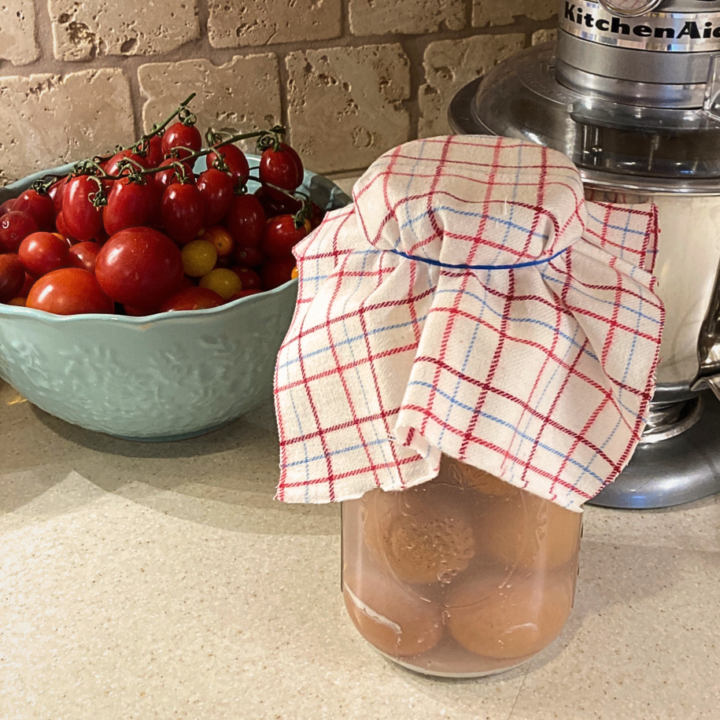
Water Glass Egg Recipe
Water-glassing eggs is a quick, easy, old-fashioned method of long-term egg preservation that doesn't require refrigeration. Bonus: only 3 ingredients are needed to make this recipe.
Ingredients
- 2 quarts chlorine and flouride-free water (well water works best)
- 2 ounces pickling lime
- unwashed farm fresh eggs
Instructions
1. Add the 2 ounces of pickling lime to a 1/2 gallon container (I prefer a 1/2 gallon Ball jar).
2. Add most of the water to the jar (about 3/4 full) and mix well. The mixture will be cloudy and will settle over time. This is normal.
3. Gently add the eggs to the jar. Consider wearing gloves if you have sensitive skin.
4. Add the remainder of the water to completely cover the eggs.
5. Add an airtight lid to the jar. I prefer the plastic lids to the metal bands and rings since they tend to rust over time.
Store your water-glassed eggs in a cool dark place like a pantry, basement, or closed cabinet.
Notes
Eggs must be farm-fresh unwashed eggs with the bloom intact. When you are planning to water glass, save your cleanest eggs from the coop to the side for this purpose.
The number of eggs that will fit in a container will depend both on the size of the container and the size of the eggs to be preserved. On average, about 15-20 eggs will fit in a 1/2-gallon Ball jar.
If you are on city water that has chlorine and/or fluoride in it, you can boil the water and let it cool OR you can let it sit in an uncovered container near sunlight for 24 hours (near a sunny window is ideal). Another easy idea is to buy distilled water for this application.
When you first mix the liming solution, it will look cloudy. This will settle over time and is perfectly normal.
You can add new eggs to the solution if you only have a few eggs to begin with. I only suggest doing this over the course of a few weeks so that your eggs are all similar in preserving age.
No matter what size container you use, your ratio will always be 1:1. For every one quart of water used, you will need one ounce of pickling lime. This recipe can easily adjust to larger amounts if you have a bigger container. See the table included in the post for help with conversions.
Have you tried water-glassing eggs? I would love to hear about it! Drop me a comment.
To be the first to hear about more recipes and great old-fashioned living tips, make sure to subscribe to our email list!
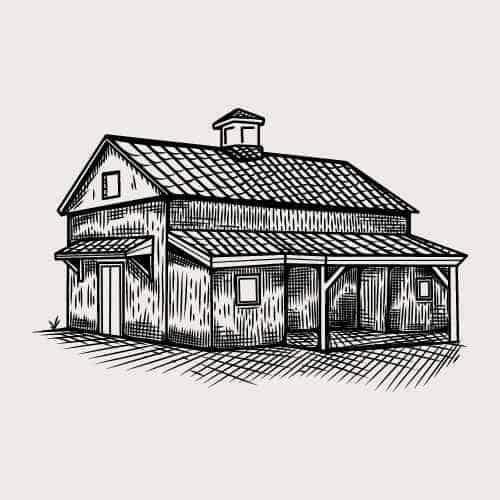
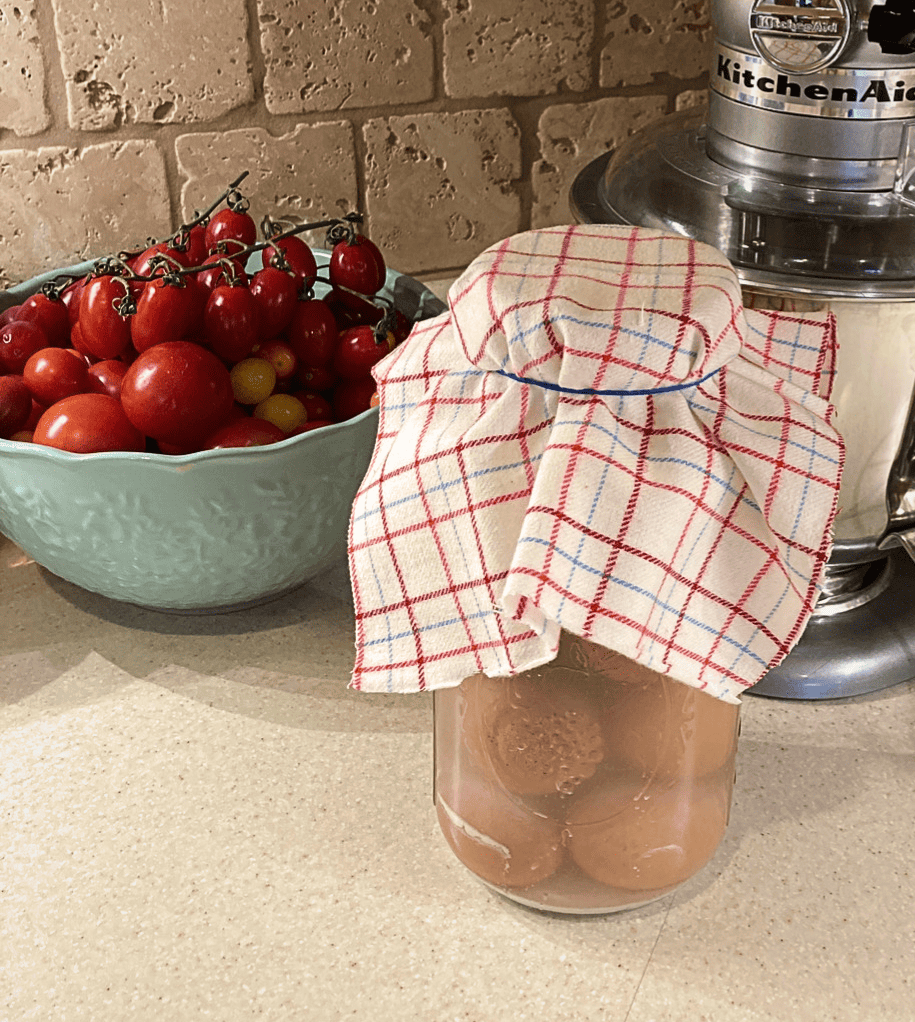
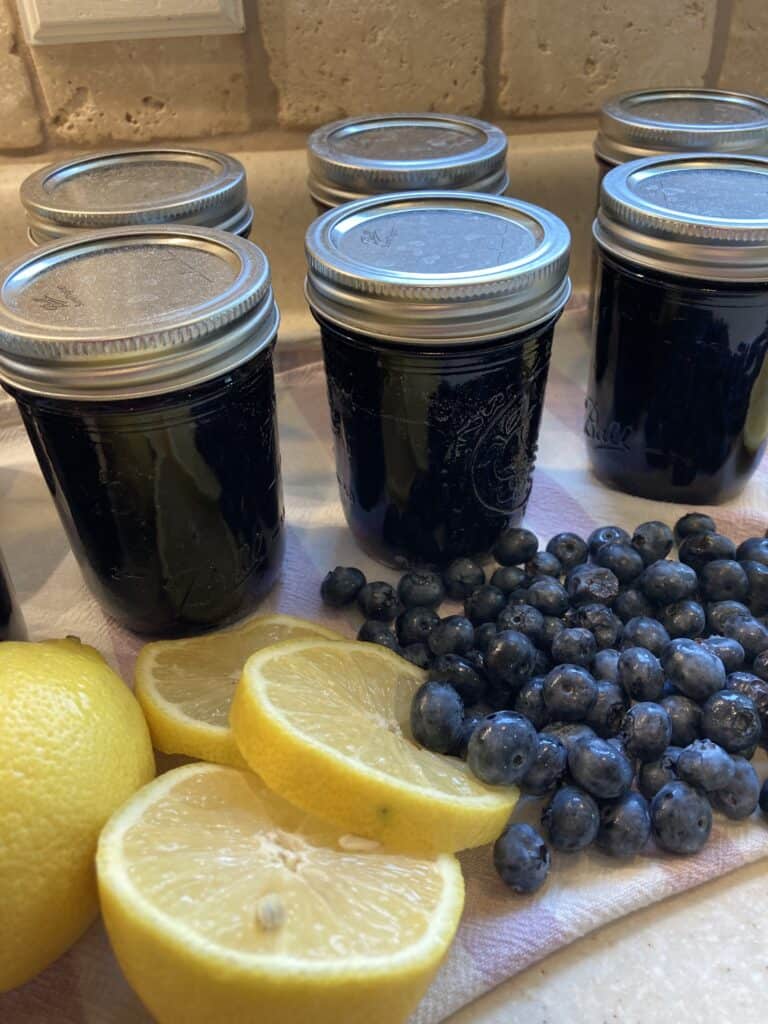

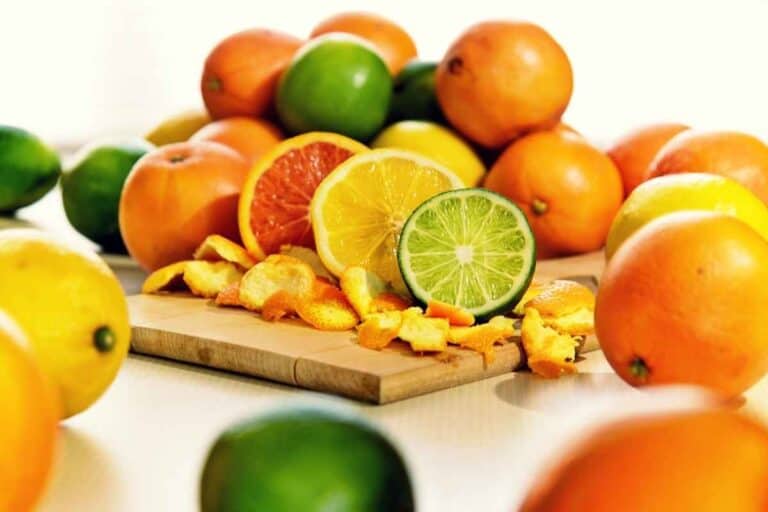
I’ve always wanted to try water-glassing our farm eggs. However, I went to my local extension office and they scared me away from trying it when I asked if they had any resources or literature for water-glassing eggs. Basically, they said it was unsafe and when I said that’s how our grandparents and great-grandparents preserved eggs, the lady said “And the deaths from food poisoning were never reported!” (!!!) How alarming!
I used to be terrified of trying any type of food preservation because of botulism. I still think it’s something to consider when preserving and that you should follow proper techniques (especially for canning). However, the research and the records aren’t there to back up safety issues regarding water-glassing.
This was a very informative post and it was interesting to read about the history of preservation. I’ve been hearing about this topic a lot lately and never knew about it before. Appreciate all the information you provided here!
I’m glad you found the post helpful!
My husband and I tried water glassing eggs for the very first time this winter and I have been SO happy with how we have a nice little collection over these months when our hens are not producing as much! Your post was very thorough and well-researched. Saving this as a reference for next year when we try it again!
I’m glad to hear it’s working for your family! It feels fantastic knowing I can walk into the pantry and grab eggs instead of having to run to the store. Especially considering the crazy egg prices at the moment!
What a great way to extend the shelf life of eggs. Thanks for sharing!
This is very informative and well written. I actually had never heard of it before and find it so interesting!
I love preserving eggs in lime water solution! Works amazing!
I actually have a question… What if you added more lime to the water because you thought the ratio water to lime was off because the water was really clear and hardly any lime at the bottom? Will it ruin the eggs if there is a tbs more added?
Great question! I wouldn’t think a small amount of additional lime would be harmful. If it was the reverse (less lime), I would be more concerned.
I’m getting a lot of eggs currently that I’m refrigerating. Are these eggs ok to water-glass after refrigeration?
I’m new to all this food preservation and it doesn’t seem safe to use eggs that have been refrigerated. I feel as though I should wait until it’s warmer out and use eggs I’ve kept on the counter.
I found your recipe and article very informative!
Thanks!
Hey Ann! Great question! I would not use eggs unless they are straight from the coop and visibly clean (no poo or mud). You also don’t want to wash them before water glassing because it removes the protective bloom. Hope that helps!